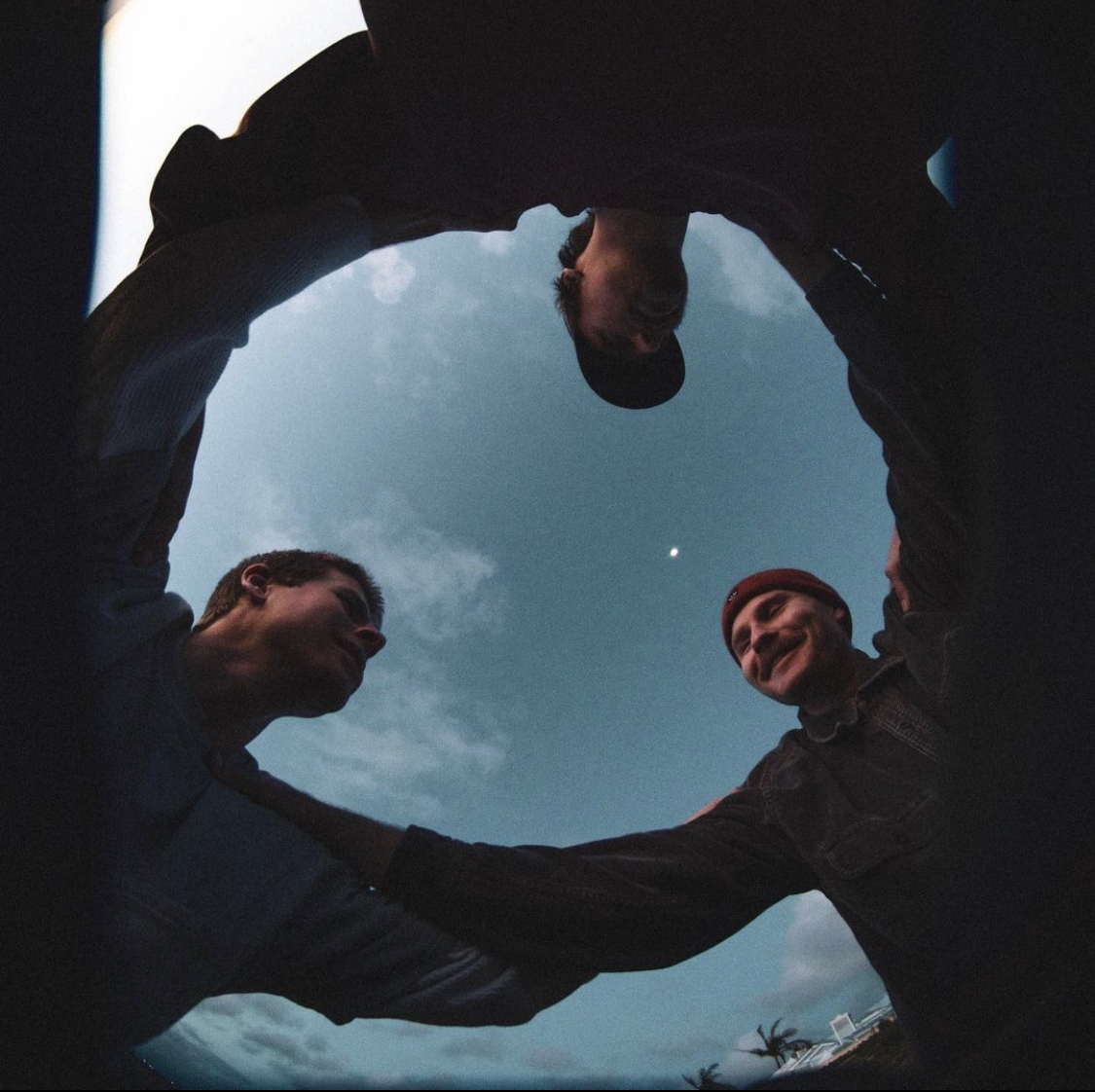“Big Dog” is a clean slate for Swede and Skogen. It takes a step away from how Erik Methot was used to writing songs and marks a definitive start of what the project is now. Along with Ben Schulze and Cameron Zirbel, the trio wrote and recorded the latest release at Zirbel’s home in San Diego, about five hours south of where they gained a following playing shows in San Luis Obispo.
The band last played in San Luis Obispo in September, opening for Drugdealer at SLO Brew Rock. At that point, the band was content with staying down in San Diego to “try to write something,” they said. It wasn’t their initial intention to put together a complete album.
Inspired by their writing and recording music together, the group continued working for eight months out of Zirbel’s home garage to make an album’s worth of songs.
The garage is a DIY musician’s dream, decked out with an amassed collection of guitars, basses, keyboards, a drum kit, amps, recording equipment, records, a pool table and a Jurassic Park pinball machine.
“We are so fortunate to have this space … the sound we’ve been getting out of here, the room, sounds really cool and unique,” Methot said.
As a home studio, the trio could spend hours in the garage writing and recording. Methot pretty much lived in the garage, he said.
“Now you can record yourself for a hundred bucks. If you just learn all your parts you can record them … So why not do it that way?” Zirbel said.
Not only was the studio garage a new space for Swede and Skogen to work and record in, but it also gave the artist the ability to approach the project in a new way. Previously, Methot had written and recorded releases under the band’s name as a solo artist. At this time, he wrote music on his own, without exchanging ideas and feedback with others, and with a looming sense of uncertainty when releasing his work, he said.
Once he was joined by Zirbel and Schulze for the songwriting process, he realized what worked for him: a collaborative process in which the three could share ideas, riffs and lyrics and give harsh but constructive feedback to one another.
“You really do have to look up to your peers to understand that this is only bettering everything that’s being written,” Methot said.
With the collaboration came a healthy sense of competition between the three. They joked about needing to one-up each other whenever someone would come up with a new song they liked.
“You’re just sitting there geeking on the other person like ‘How did they write that? I suck.’ That’s the best feeling when you feel like you have to prove yourself,” Methot said, and his bandmates agreed.
“Being competitive like that, that’s the fun too,” Zirbel added.
Shortly after they all got together to start writing, they realized that they had lucked out. In addition to having similar music tastes and a shared understanding of the direction of their music, the three are also good friends — which is a combination of factors they have found to be pretty rare in music, they said.
In such a cohesive state, their music and ideas flowed naturally. On the first night of writing together, they came up with the first single from the album, “Supertrick.” By the end of the writing process, they had at least 30 songs, with each member taking turns writing lyrics, singing and playing other instruments like the guitar, bass, keys and drums.
In some cases, one person would be in the garage recording their take while the other two would be hanging out in the backyard jamming on acoustic guitars.
“Seven times out of 10 it would turn into a song being written,” Zirbel said.
The second single they released from the album, “Pilot,” was a product of one of their backyard jams while Zirbel did vocal takes in the garage.
Methot found that this collaborative process was way more productive and another key difference between working with others and working as a solo artist.
“I’ve been playing music for such a big part of my life and I’ve never experienced something like that before … that was such a cool thing,” he said.
One day while working on the album, a few friends of the band, who are also a part of a film production company called Hot ‘n’ Tedious, came by to document the band’s work. They captured a look into the eight-month process with a short documentary. Their friends also helped create recent music videos for the songs “Rosa” and “MT-70.”
Since the album’s release on May 25, the lead single “Supertrick” has over 8,000 streams. Schulze said one of the coolest things they’ve heard from friends, family and fans is that everyone has their own favorite song from the album.
After almost a year with no live shows and an album of new songs to play, the band is looking to get on stage soon with a well-practiced setlist. Now that Swede and Skogen is officially a three-person writing project, their show lineup will include the trio, drummer Riley Ross and bassist Braden Hotra, whom Methot met while at Cal Poly.
Updates on Swede and Skogen’s shows and music can be found on their Instagram, and their newest album “Big Dog” is available on streaming platforms.


